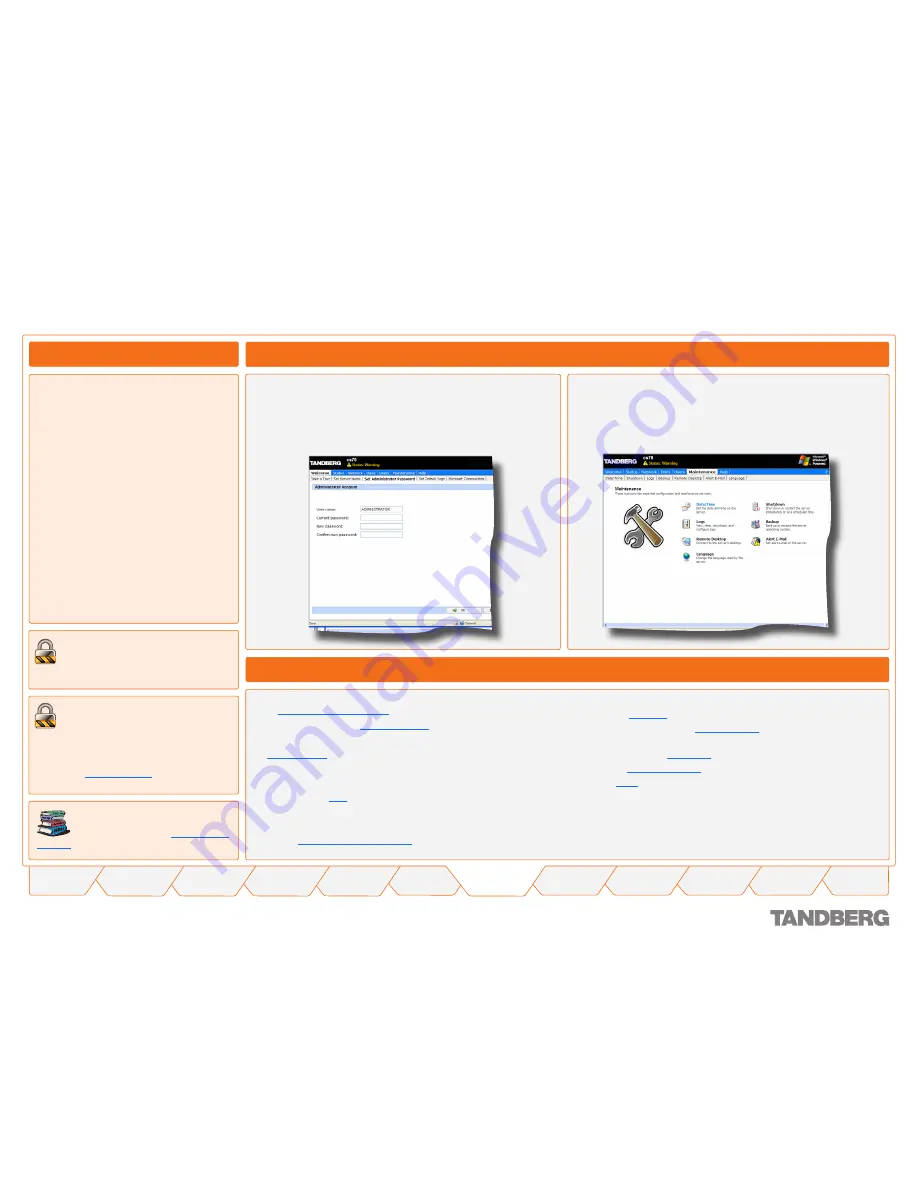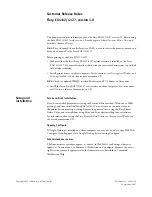
TANDBERG
CONTENT SERVER
USER GUIDE
Table of
Contents
What’s New in
this Version?
Trademark/
Licenses
Safety/
Environmental
Introduction
Installation
Quick Setup
Operation
Administrator
Settings
Conference
Setup
View
Conferences
Appendices
D 13898.04
DECEMBER 2006
Basic H. Services Setup via Content Server Interface – Step
Quick Setup
About Basic H. Services
A quick basic setup of your TANDBERG
Content Server includes:
Setting up H.323 services via the Content
Server interface (described two pages
back)
Making a test call recording (described on
the previous page)
Changing the administrator password and
setting up server date and time on the
Windows Server.
In addition there is an optional QuickTime
Installation available. This installation is only
needed if you require calls to be recorded and
streamed in the QuickTime® format.
1.
.
.
Once the initial setup has been completed (previous page),
log in to the Web User Interface for Microsoft Windows Server
administration,
https://<ContentServerIPaddress>:0/
,
and use the
Set Administrative Password
tool to change your
administrative password.
Go to
Maintenance
>
Date/Time
to update Date and Time
settings on the server.
Web Server Setup
To read more on how to set the
administrative properties and user
configuration, see the
Administrator
Settings
section.
You may wish to record your new
administrative password in a safe location.
Please note that you should not change the
default administrator account name.
It is also strongly recommended at
setup time that you change the default
database System Administrator (sa)
account password, and set new
passwords for the Content Library and Content
Engine database account passwords. Please
refer to the
Account Security
chapter of this
manual for details.
Recommended Next Steps
Register your Content Server using the Registration Card or via the web
at
www.tandberg.net/register
Apply the most recent
security updates
for the Content Server
Decide what your Content Server settings will be in the following areas:
Authentication
:
Use Local machine users, or
use LDAP/Active Directory users and groups (recommended).
Manual dial or
TMS
:
Use in stand-alone mode with ad hoc dialling
Use with TMS 11.6 for scheduled calls.
Review
recording template settings
1.
.
.
•
a.
b.
•
a.
b.
•
Optional – configure special case streaming resources:
Enable
multicast
Configure templates in
Template Editor
for use with external
streaming servers.
Optional – add new
Categories
Configure
Recording aliases
Review
ports
used by the Content Server and adjust your firewall
settings if required.
•
a.
b.
•
•
•
















































